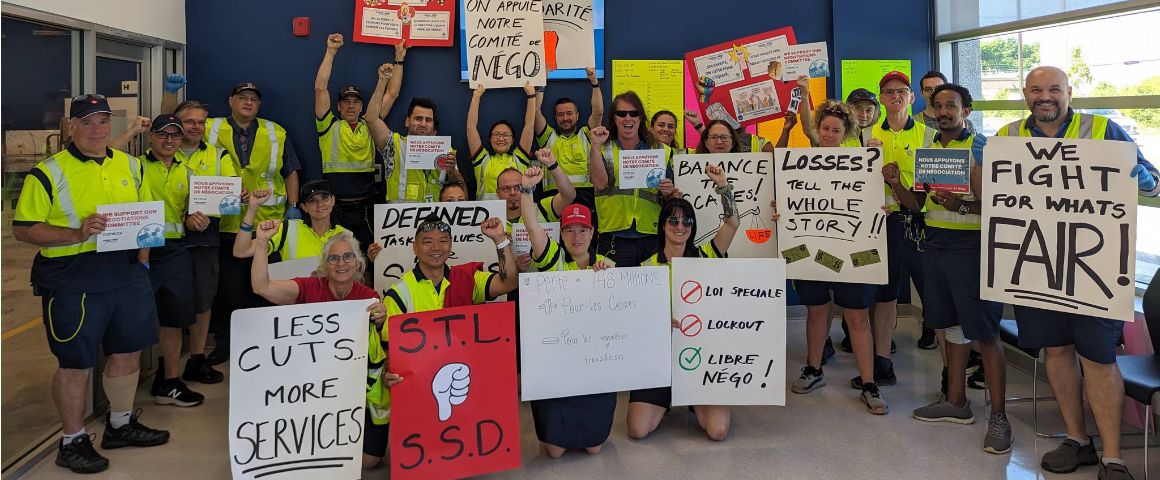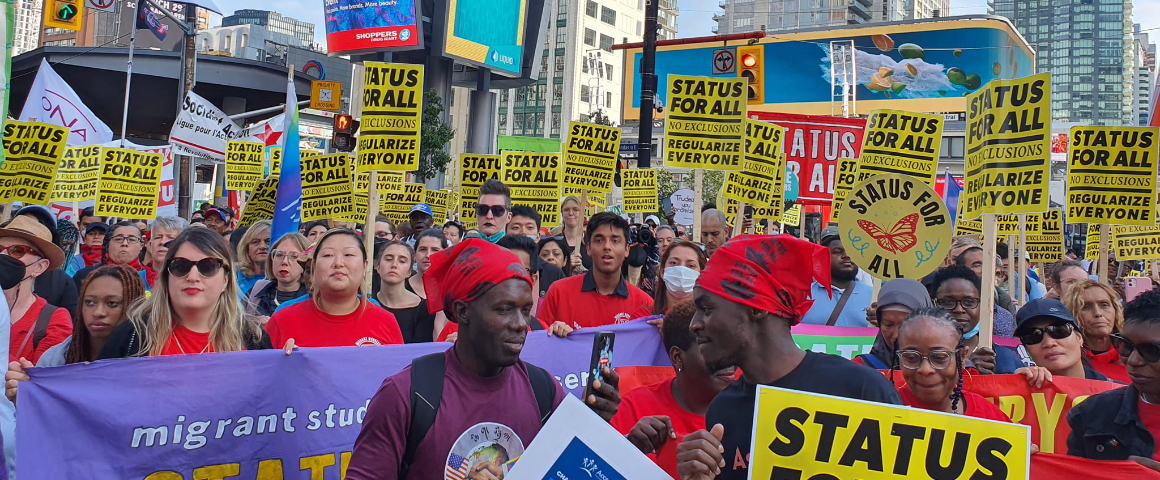North Vancouver’s Capilano University is being pressed to provide a decent wage and better conditions for cleaning staff.
Dozens of students and supporters gathered on November 22 in the Cap U Student Union Lounge for a panel organized by the newly formed Student Worker Alliance Group (SWAG) to discuss what a Living Wage would mean for low-wage workers on campus.
The panel, called “A Dialogue on Justice,’ included Tom Walker, Labour Studies Professor at Simon Fraser University; Kimball Cariou, Editor of the People’s Voice newspaper; Deanna Ogle from the Living Wage for Families Campaign; and Máire Kirwan, Director of Staff Membership at the Hospital Employees’ Union (HEU).
Delia Tanza, Analou Espina, and Stephan Scott, who are cleaners at Capilano University and members of the Bargaining Committee, shared their personal stories and struggles that led them to form a union with SEIU Local 2 earlier this year.
Tanza reiterated the need for public support on campus for the cleaners to win a fair first contract and explained to the audience; “I want a union, and my coworkers want it, because we want safety and benefits… We work for very little salary, just one job is not enough for us… I am a single mom and work 3 jobs. I work in the morning, I work here [Capilano University] at night, and I work Saturday and Sunday… So, hopefully people here at the University can help us.”
The crowd and panel members discussed what a Living Wage means for workers and their families; in particular, for contracted service workers who have been put in more precarious situations due to constant contract flipping and a competitive bidding model that has created a race to the bottom.
Kirwan elaborated on what HEU contracted workers said a Living Wage would mean for their lives and families. “They said that they’d be able to go home at night to say good night to their kids, or they wouldn’t have to survive on the food bank, or they would be able to do something fun with their kids because they would have a little extra money. These are things that many of us take for granted.”
Deanna Ogle discussed examples of some successful Living Wage campaigns that have forced Employers to provide Living Wages to all direct and contracted workers, but still, there is a lot of work to be done. A Living Wage in Vancouver’s Lower Mainland is $20.62 an hour, but as Ogle explained “almost 1/3 of families in the Lower Mainland are not earning a Living Wage.”
Living Wage campaigners have argued that governments and public institutions should be the ones leading the way in setting higher standards.
The panel also discussed some of the challenges in winning a Living Wage and the need to keep on organizing workers and fighting for improvements.
“You can’t take anything for granted. We all have to fight to win every single battle, but you always know any gain that you make is in danger of being pushed back… There are no easy short-term solutions. Yes, having a union is almost always better than not having a union, but it’s not the end of the struggle,” said Kimball Cariou.
Founded in conjunction with negotiations of the contracted cleaners at Capilano University, SWAG has been pushing forward a policy of a Living Wage on campus for all workers, with plans to take on other social justice issues affecting workers and students.
On Nov. 29, SWAG and SEIU Local 2 will organize a rally to stand with low-wage working people on campus. The groups deliver a petition and open letter to University President Paul Dangerfield, callomg on all stakeholders to implement a formal Living Wage and Benefits policy for all campus workers.
(Based on a report from www.justiceforjanitors.ca)




